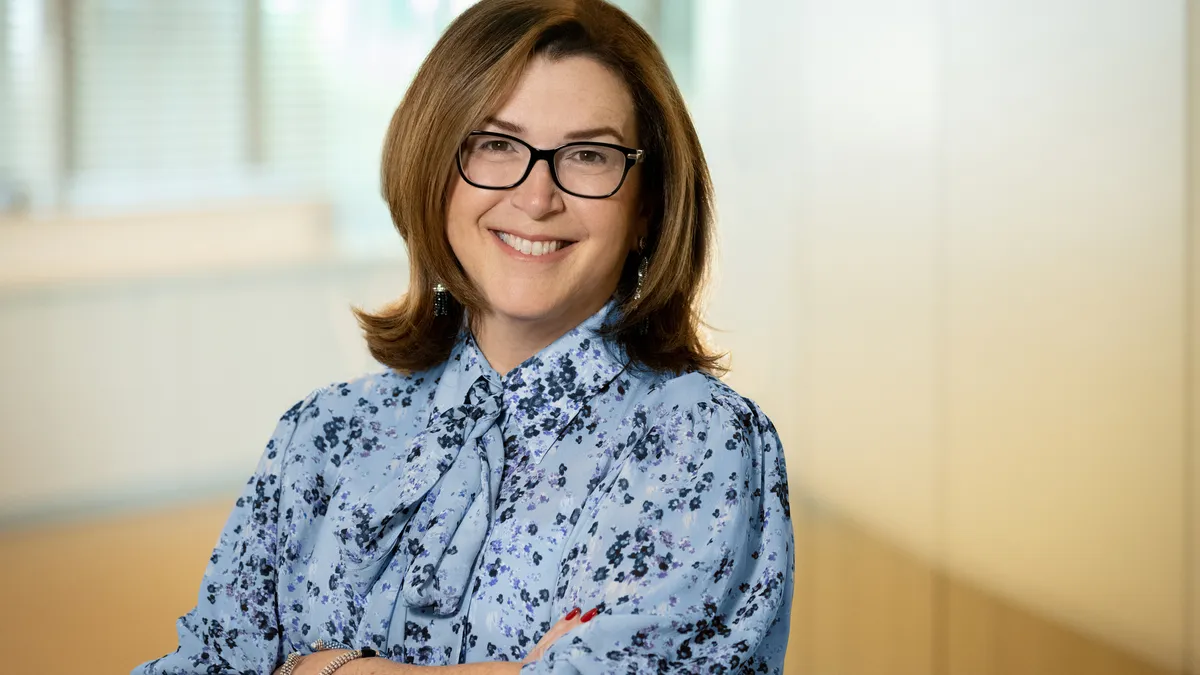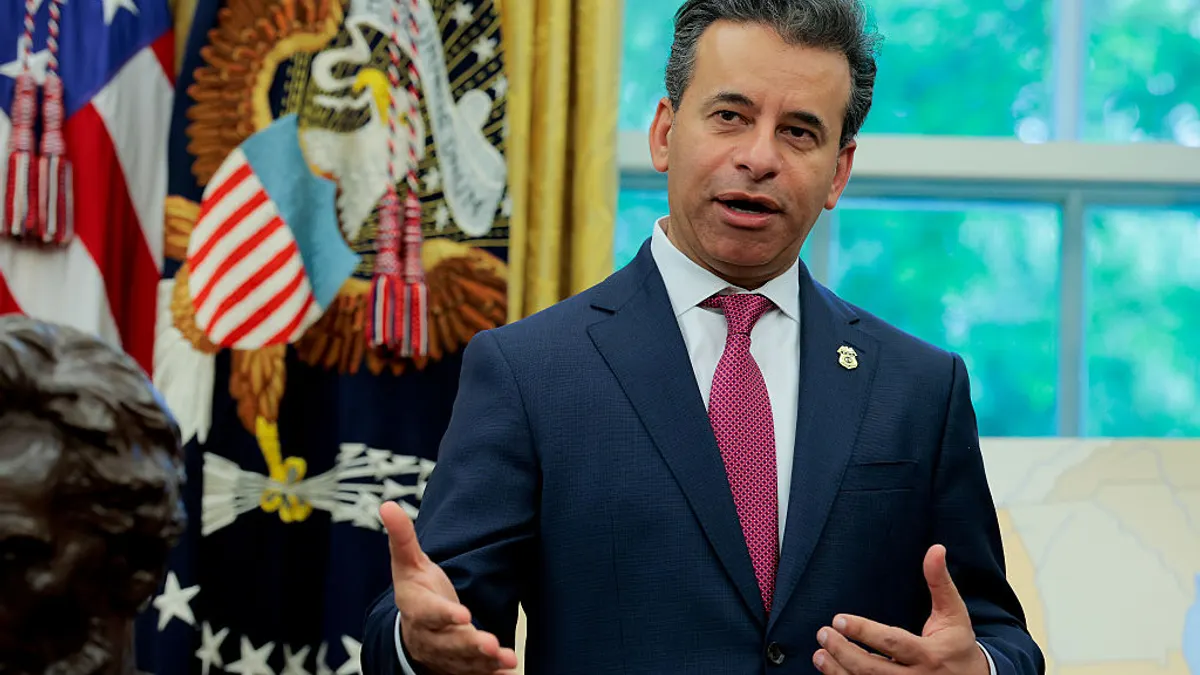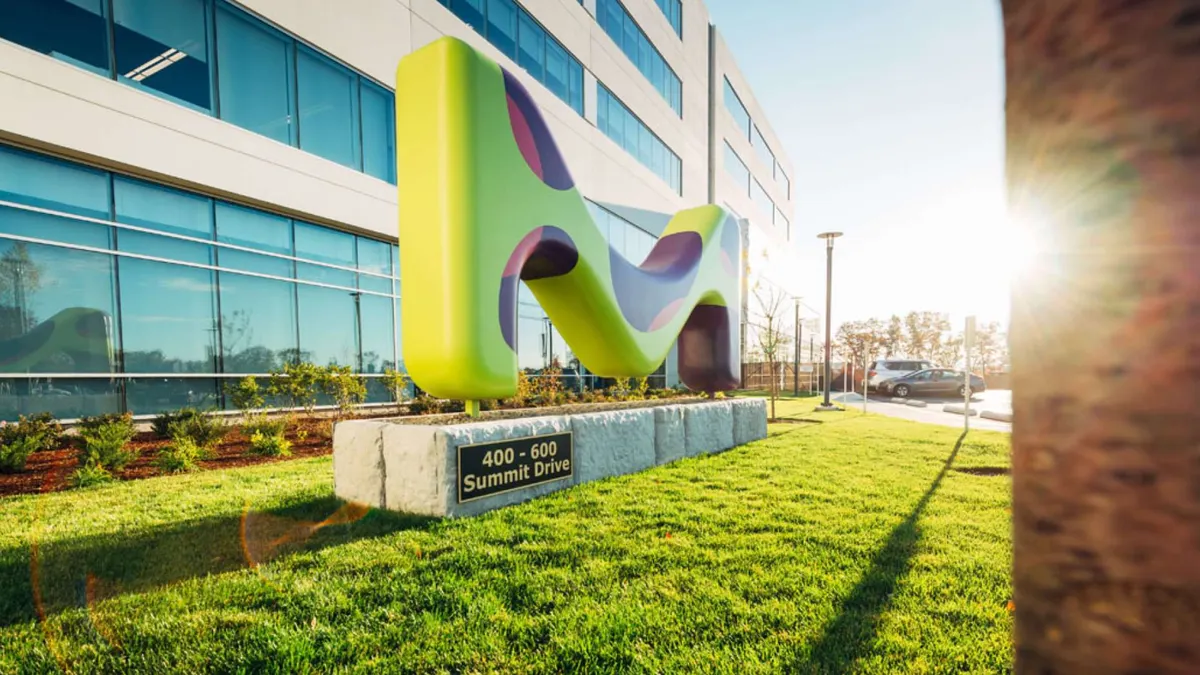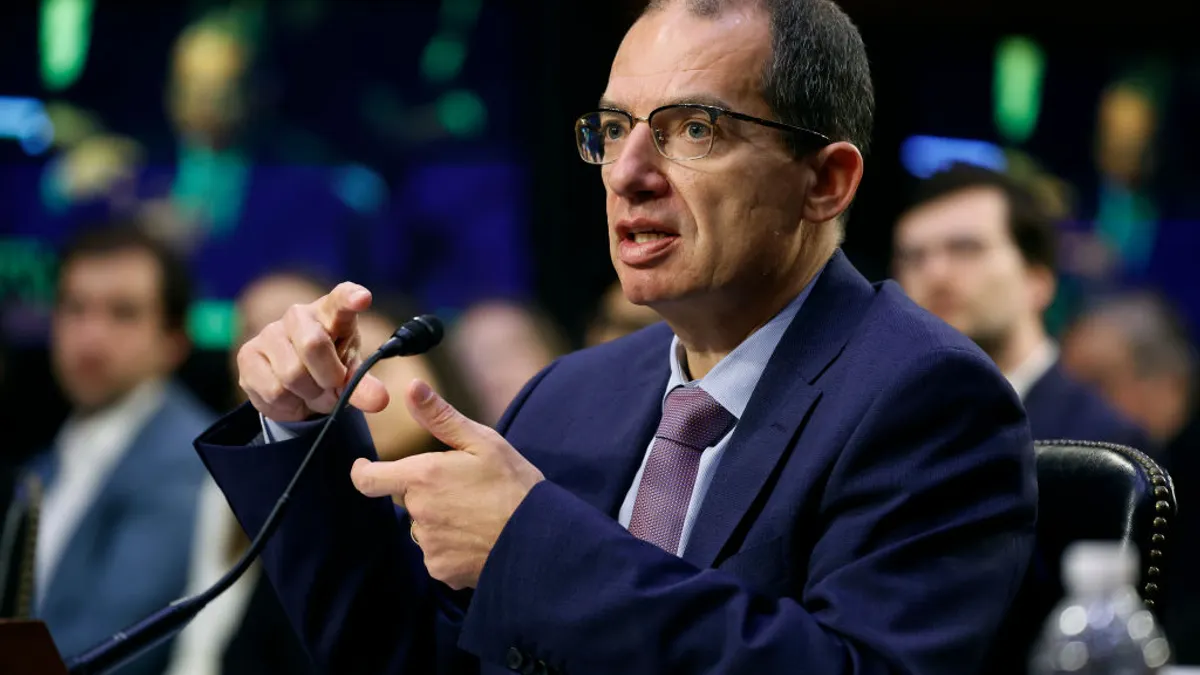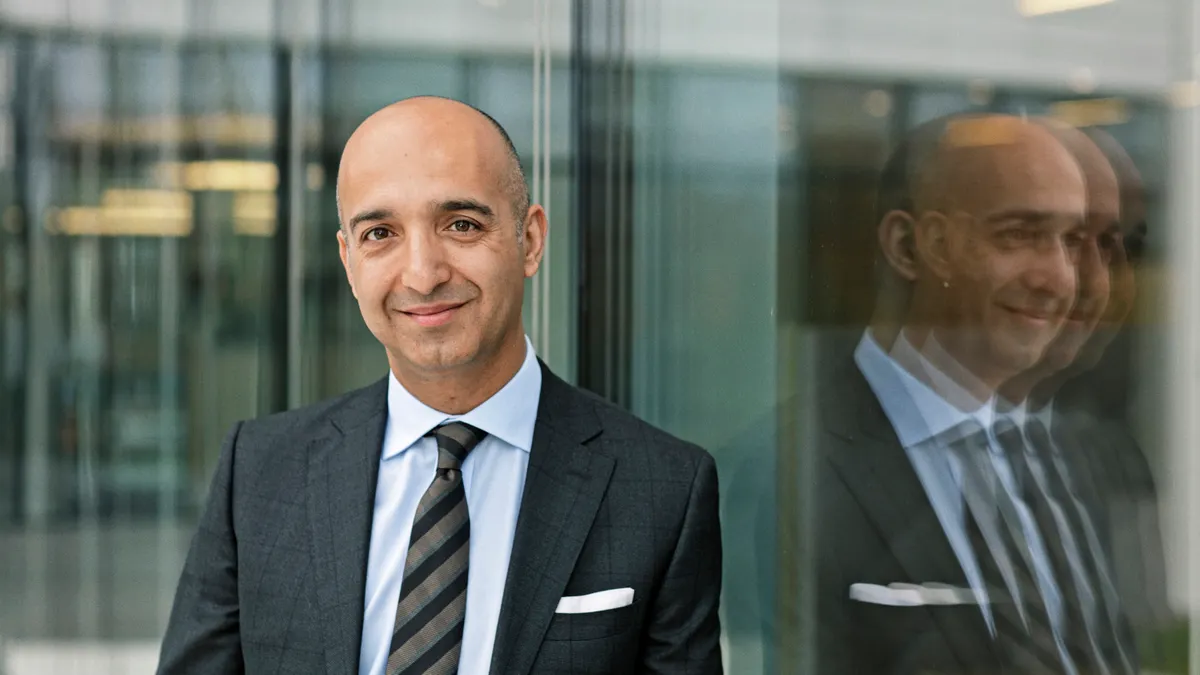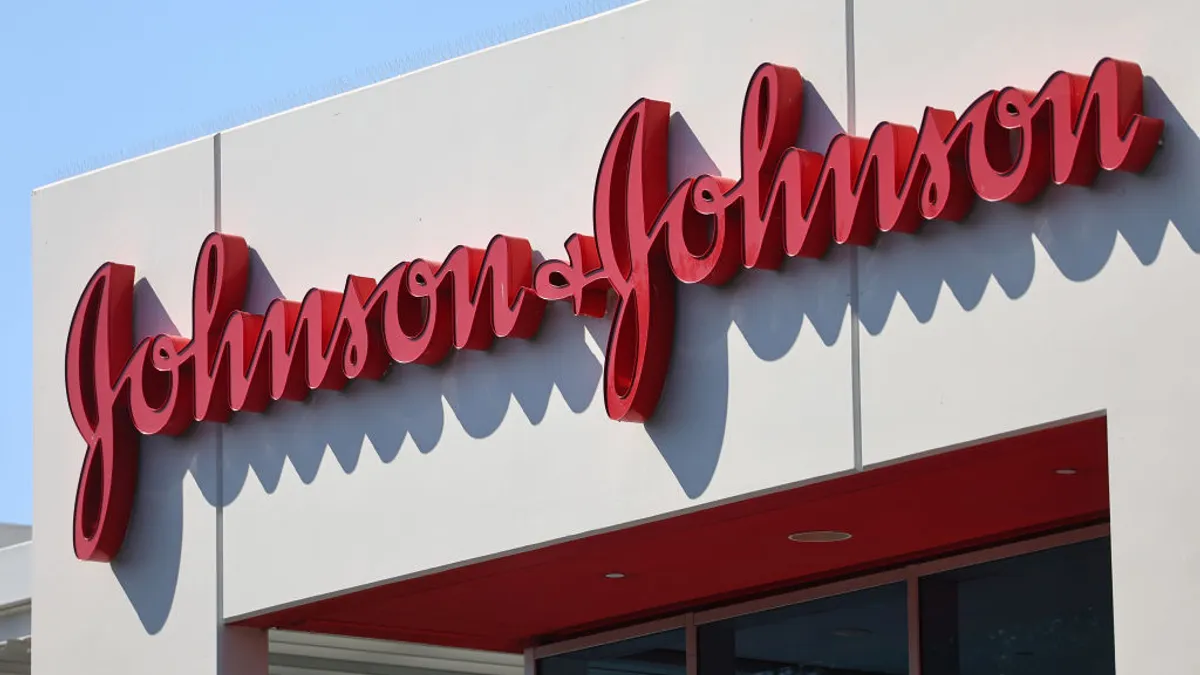Teresa Bitetti, president of the global oncology business unit at Takeda, knows that no pharma is an island. And with intensifying competition in the cancer business, partnerships offer a way to expand a portfolio and fuel the next stage of growth.
Most recently, Takeda and Chinese partner Hutchmed welcomed the FDA's priority review for the colorectal cancer drug fruquintinib with potential approval by the end of the year.
"The focus now is to make sure we continue to grow the assets we have and be prepared and ready to move quickly as soon as we get an approval," Bitetti said ahead of the annual meeting of the American Society of Clinical Oncology (ASCO) June 2-6. "It's all hands on deck for the next six months."
And there are likely other partnerships on the horizon to add to the more than 60% of the pipeline that involves scientific collaboration. ASCO, Bitetti said, is "a wonderful opportunity to see where the markets are going, where the trends are hot." She said you can never get too cozy in any R&D organization without refreshing the coffers.
And with sales of the company's best-selling cancer treatment Velcade dropping almost 75% year over year in the first quarter due to generic entries, now is the time to scan the horizon for new assets and companies to work with.
"We're always trying to get a sense of the later-stage molecules coming through to begin to understand the efficacy bar, which is getting reset year after year," Bitetti, a former PharmaVoice 100 honoree, said. "What does that mean for the agents that are in the pipeline in terms of what one can assume will now become the standard of care? Maybe not today, but in three or four years — you have to be planning that far out."
Here, Bitetti discusses where Takeda stands in the overall oncology landscape and how partnerships could shape the company's portfolio for years to come.
This interview has been edited for style and brevity.
PHARMAVOICE: To go with the big question first, where do you see the oncology space headed overall, and where does Takeda's pipeline fit into that landscape?
TERESA BITETTI: To go to 50,000 feet, when you look at the historical progress of what we've seen happen in oncology for a while — the surgery, the radiation, the chemo — and when you finally saw the advent of a focus on the immune system, I remember at the time it was almost heresy in the earlier days. Scientists were disregarded around the immune system. But now, as we look at the big breakthroughs and a lot of the mechanisms that are unique, all of them are related to the immune system. That's where the real breakthroughs are coming in.
"We have a number of really cool things coming through our pipeline, but to be current and relevant, one needs to constantly be scanning the horizon."

Teresa Bitetti
President, global oncology business unit, Takeda
And there are two parts of the immune system — one is the adaptive immune system, which allows your body to recognize when there's a foreign host, like a vaccine. And a lot of what's been happening in the oncology space has been tapping into that adaptive immune system. At Takeda, we're more focused on the innate immune system, which is like your army that's surveilling all the time. It goes in and immediately recognizes and kills. The majority of our pipeline is around, how do we enhance that piece of the immune system? It's a slightly different angle that I think is getting picked up more.
Why did your path lead that way?
The team has come through the research labs with interferon-based molecules that trigger augmented response from the immune system based on receptors that glom onto tumor cells. And so through partnerships on some platform technology, as well as what has come out of the labs, that's where the focus has been — although we have some things that are outside of that purview.
The other area where we've done a lot of early work is in cell therapy. When you look at the trends in oncology — if we figure out how to manage some of the side effects and manufacturing bottlenecks — the power of what's happening there is staggering.
Collaboration is such a big part of the pharma business and Takeda has dozens of partnerships across the pipeline. How do you keep your finger on the pulse of the industry to ensure you're eyeing the right drug candidates?
When you're a larger company like Takeda, I think there would be enormous hubris if we were to think we could get innovation only from our own internal pipeline. We have a number of really cool things coming through our pipeline, but to be current and relevant, one needs to constantly be scanning the horizon. One reason is for business development, and the other is just in terms of understanding the trends, understanding what's going out in the marketplace, understanding the competitive dynamics — you need to be doing that, and you learn so much when you're meeting with different companies. And so we have a very broad effort both on the business side and the R&D side.
On the R&D side, there's a team that does a lot of what they call search and evaluation, always meeting with small biotechs, understanding their platforms, understanding whether maybe it's not advanced enough that we should be investing, for example. And then over on the business side, we're looking at the later-stage assets and doing the same search and evaluation. What Takeda is often able to bring to the table is commercial capabilities — we know how to operate the machinery to move something through development, and we know how to take a later-stage asset and move that through regulatory bodies around the globe. It's a lift that I think normal mortals don't really understand what it takes to do.
Hutchmed, for instance, fell into the business side, looking and scanning the horizon and understanding where we want to be. Colorectal cancer is an area where we have an interest because we're a leader in Japan, and we want to further extend our presence. Hutchmed didn't have the commercial capabilities globally and they wanted to have a partner so they could instead take their resources and further develop their pipeline.
What are the questions or conversations that are most important in developing a partnership?
You have to understand the science. Is the science good? Do they use the relevant comparators? What are the guidelines? What are people using and how does the data fit in? The most important thing is the science and whether it's going to address the unmet need.
Also, if you're going to be in a partnership, you need to trust who's on the other side of the table to have a culture with integrity. Being simpatico in terms of how you do business and how you think about things is vitally important because, at the end of the day, you could have everything right, but if they don't see the world the way we see the world, there's no connection.
In terms of financials, the oncology business has declined due to competition and other factors. Do you look at this as a rebuilding period?
When I look at where we are in the business, we have a solid portfolio with a lot of growth to continue. Velcade came off patent this year, but there's more growth in the portfolio. Now we have fruquintinib, which is refreshing and adding new energy — and we're always scanning the horizon. We're continuing to do everything we can to accelerate the interesting assets we have in the pipeline. For me, as the leader of the oncology unit, I'm very excited about where we're going.
Velcade, if you look at the absolute numbers, came down — but when I look at the trajectory of what we have going forward and where I see us landing, to me it's exciting. I like my job.



